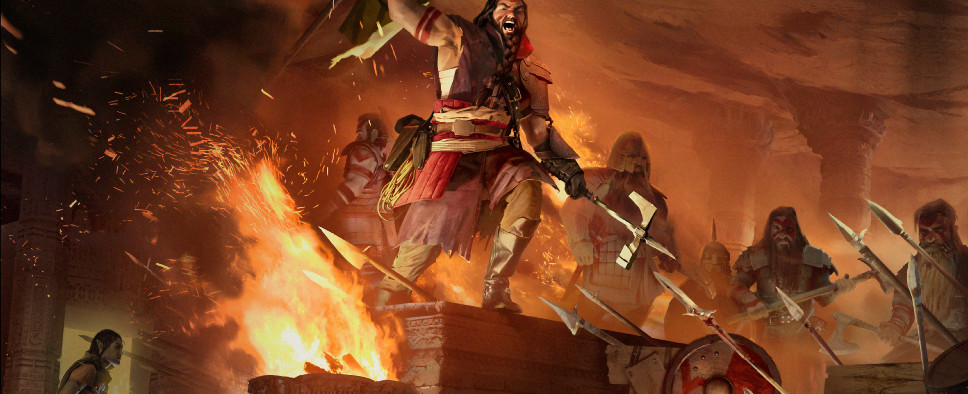Underworld Ascendant Interview
-
Category: News ArchiveHits: 1576

There's an interview with Otherside Entertainment's Paul Neurath and Joe Fielder on GameSpot today, and as you might have expected, the topic of conversation is their upcoming first-person RPG reboot, Underworld Ascendant. To be honest, I'm a bit concerned about their plan to move away from numbers-heavy character statistics, but I'll hold off on passing judgment until I see it firsthand:
Can you tell us a little more about how the moment-to-moment gameplay will feel?
Neurath: The original Underworld still had one leg back in traditional pen-and-paper gaming, so it's still dice roles for strength and dexterity, all that stuff. We're jettisoning all of that. There's numbers crunched in the back, but the player doesn't experience it. We want it to feel like an authentic experience. If you were really this character, really in a fantasy world, you're not thinking about, "I have a 17 strength." You're thinking "I'm learning a skill, I'm getting better and better at wielding a sword" or "I've learned now how to cast some more spells."
Fielder: We don't really have hardcore classes, per se. We have skills and abilities that fall into combat, stealth, and magic. If you want to just focus on one of those areas, you could. You would have a very, very different experience. For magic, I'm referring to it as you're kind of unlocking the source code of reality. We have a runic spell system, similar to the original Ultima Underworld's, but we're doing a procedural spell system that our lead designer, Tim Stellmach, has developed. It really allows you to kind of customize your own favorite spells. He was the lead designer on Thief, and he worked on Ultima Underworld II as well.
On top of that, we have our faction system, which is there are three main factions who aren't openingly warring, yet they're definitely at odds. All three factions have their own wants and desires that are very much on a collision course. Based on who you decide to ally with, you are unlocking different quests. You're unlocking different narrative, different endings, potentially, and also access to exclusive weapons and rooms. Really, it's very much a player-directed experience.
Neurath: Your approach to many of these encounters can come out very differently depending on your character or the strategy that you decide to take. Replayability is something we really want to go for here. We're a mini-studio. We only have six people in-house, and so we're not going to build some massive game that has 500 hours' worth of linear content. Instead, we can create a game that's very dynamic, and every player who plays it can have a different sort of experience.

